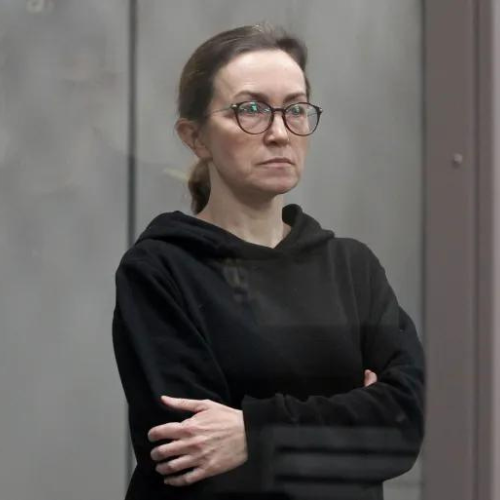In a development that has garnered significant international attention, Alsu Kurmasheva, a Russian-American journalist working for Radio Free Europe/Radio Liberty (RFE/RL), has been sentenced to six-and-a-half years in prison by a court in Kazan, Russia. This case highlights the ongoing issues of press freedom and the treatment of journalists under authoritarian regimes.
Background on Alsu Kurmasheva’s Arrest
Alsu Kurmasheva, who holds both Russian and American citizenship, was initially arrested in Russia last October for not registering as a foreign agent—a requirement imposed by Russian authorities on journalists and organizations receiving foreign funding. Kurmasheva’s arrest was linked to this registration issue, but she later faced the more severe charge of spreading false information, a tactic frequently used by the Russian government to suppress dissent and control the narrative, particularly regarding its actions in Ukraine.
Details of Alsu Kurmasheva’s Detention
Alsu Kurmasheva’s arrest occurred during a family emergency in Russia. Despite her dual citizenship and role at RFE/RL’s Tatar-Bashkir service—focused on issues affecting ethnic minorities in central Russia—Kurmasheva was detained while waiting for her return flight. Her Russian and American passports were confiscated, revealing a legal quagmire in Russia where failing to declare a US passport is illegal. This led to a fine and, subsequently, her arrest on the “foreign agent” charge. While in custody, the more serious charge of spreading false information was added, escalating her legal troubles.
Reaction from RFE/RL and International Community
The conviction of Alsu Kurmasheva has been described by Stephen Capus, President and CEO of RFE/RL, as a “mockery of justice.” Capus has called for Kurmasheva’s immediate release, emphasizing the severe impact the incarceration has had on her family and health. Kurmasheva, a mother of two, has not been able to contact her children since her arrest, and her health has reportedly worsened under the harsh conditions of detention.
The Broader Context: Repressive Laws and Press Freedom
The broader context of Alsu Kurmasheva’s case involves Russia’s use of repressive laws to stifle independent journalism. The “false information” charge, introduced into Russian law shortly after the invasion of Ukraine on February 24, 2024, has been used to suppress criticism of the war and control information. This legal framework has been criticized by independent media organizations and press freedom advocates as a means to curtail free expression and control sensitive issues.
Speculation on Political Implications and Prisoner Exchanges
Alsu Kurmasheva’s situation fits into a larger pattern of the Kremlin’s handling of foreign nationals and journalists. Recent months have seen speculation about using detained American citizens as leverage in negotiations with the United States. The swift conviction of Wall Street Journal journalist Evan Gershkovich has further fueled such speculation, with some observers suggesting that his case might be linked to potential prisoner exchanges.
International Reactions
While Russian President Vladimir Putin has hinted at possible exchanges involving US prisoners, Kurmasheva’s situation remains less clear. The rapid pace of her conviction and the political implications of her detention highlight the complexity of international relations and the precarious position of journalists operating under authoritarian regimes.
The international community’s response to Alsu Kurmasheva’s sentencing has been one of concern and condemnation. Her case not only highlights the risks faced by journalists in repressive environments but also serves as a reminder of the ongoing challenges to press freedom globally. Kurmasheva’s plight is emblematic of the broader struggle for journalistic integrity and human rights amidst escalating geopolitical tensions.
As the legal and diplomatic maneuvers surrounding Alsu Kurmasheva’s case continue, the call for her release remains urgent. Her story is a powerful reminder of the critical role of independent journalism in holding power to account and the dire consequences faced by those who dare to speak truth to authority.
The resolution of Alsu Kurmasheva’s case may hinge on broader political negotiations, but for now, her imprisonment stands as a significant test of the international community’s commitment to press freedom and human rights. As developments unfold, the hope for her swift release and reunification with her family remains a crucial concern for advocates of justice and free expression worldwide.


